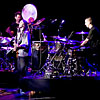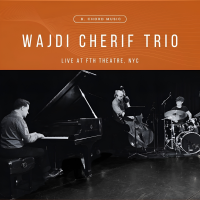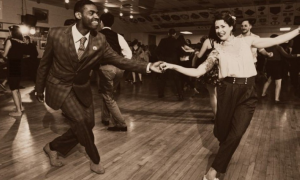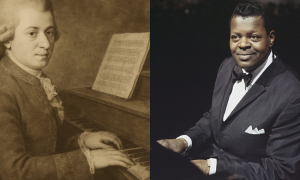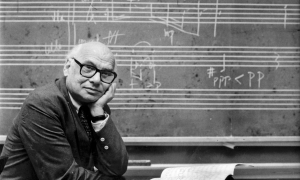Home » Jazz Articles » Opinion » Music: The Universal Language
Music: The Universal Language
 One of the most common phrases concerning music used by musicians and non-musicians alike is "Music is the universal language." But what does that really mean to people? When asked, for the most part the non-musician might say, "You can listen to any kind of music and appreciate it." The musician might say, "You can walk into a musical situation and sit in with musicians from other countries, races or cultures." At any rate, if that's the case, why is it that the average musician can't talk to the average person about music without making them feel out of their element?
One of the most common phrases concerning music used by musicians and non-musicians alike is "Music is the universal language." But what does that really mean to people? When asked, for the most part the non-musician might say, "You can listen to any kind of music and appreciate it." The musician might say, "You can walk into a musical situation and sit in with musicians from other countries, races or cultures." At any rate, if that's the case, why is it that the average musician can't talk to the average person about music without making them feel out of their element?When talking to the non-musician, some musicians use words and phrases like "measures," "chords" and "chord progressions" or the modes they choose to use for each composition they've played—Schoenberg's 12-tone row, etc—that make the non-musician feel that understanding music/jazz is out of their reach. While some of these terms may be valid when talking to fellow musicians, why use them when talking to those with no musical background? We should be able to communicate what we do without talking over their heads. Remember, these are the people we want to come out, appreciate and support what we do.
If music is truly the universal language, then at times we should be able to talk about it using more everyday terms so everyone can understand it at some level. For example, I've heard some people say they don't understand what we do when we're "soloing or improvising," that it sounds like noise. Some musicians have responded by saying things that really don't clear up anything for the listener. What we're really trying to do is have a "conversation" with the musicians with whom we're performing. No matter what label you put on the music—jazz, free, spiritual, etc.—it's still a conversation or a monologue. When we have a verbal conversation with others, first a subject is picked: "Did you see the latest movie?"; "Have you read the latest book by...?" or "Did you see the game on TV?" In music we do this by picking a song everybody knows. After the melody is introduced, we then ask each musician to offer their thoughts on that piece. That's when they present their monologue, or solo.
The non-musician reads books, looks through dictionaries, encyclopedias, thesauruses, magazines and watches TV or movies, building their vocabulary. We do the same thing when we practice, listen to recordings and watch other musicians perform. We're trying to expand our knowledge of this musical language. We may not play everything we've practiced whenever we play but the average person doesn't try to say every word they know when they speak. We like being equipped with the words to use whenever desired.
I've heard some musicians say they're able to play music with other musicians without speaking the same language or talk about how free improvisation is all spontaneous. This isn't true. We've been learning to speak similar languages from the time we started studying music—rhythms, notes, scales, patterns, dynamics, range, harmony, melody, etc. We've been preparing for this and other situations all our musical lives. As far as spontaneous, we're still playing things we've practiced but maybe not in the same way we've practiced them. If it were completely spontaneous, we wouldn't have to practice. We'd be able to pick up our instruments and play. But we don't. We're always looking for ways to expand our musical vocabulary.
I'm not saying we should restrict our musical thoughts, expressions or journeys. We appreciate those who are open to and interested in joining us. What I am saying is, why alienate the listener by talking in terms we know they don't understand?
I remember being in a class in high school when the teacher played different sections of a recording. Afterward she asked what they reminded us of. Some of the students said one section reminded them of being in a park in the springtime. Someone said another section made them think of a snowstorm. Someone else said another section made them think of a very hot summer's day. Someone else said another section made them think of a park but in the autumn when then leaves are changing colors. The music the teacher played was Vivaldi's Four Seasons. The teacher was trying to show how music could create images without using words and this wasn't a music class. This incident stayed with me all these years. This was when I truly started to understand the phrase, "Music is the universal language." In that moment, the music spoke to everyone.
Tags
PREVIOUS / NEXT
Support All About Jazz
 All About Jazz has been a pillar of jazz since 1995, championing it as an art form and, more importantly, supporting the musicians who make it. Our enduring commitment has made "AAJ" one of the most culturally important websites of its kind, read by hundreds of thousands of fans, musicians and industry figures every month.
All About Jazz has been a pillar of jazz since 1995, championing it as an art form and, more importantly, supporting the musicians who make it. Our enduring commitment has made "AAJ" one of the most culturally important websites of its kind, read by hundreds of thousands of fans, musicians and industry figures every month.



